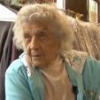https://sci-hub.st/d...-019-0673-2.pdf
THis is Very interesting paper that I see nobody really talking about. Funny how the hallmark ages they discuss here are 34, 60, and 78 which are right around the ages I have watched friends or family literally rapidly deteriorate in health, external appearance, cognitive related issues. I am VERY interested in hearing what you all think of thiss. The fact that they found these protein level sudden shifts at 34, 60, and 78 out of testing over 4000 people seems like a quality finding, and this REALLY is a cog in the gear of the usual theories of aging discussed here. Mainly, the idea that no matter what there are genes that will switch on or off at very specific ages that drive aging in a NON LINEAR way. Has anyone noticed such changes regarding any symptoms/trajectory of aging around these ages in either themselves or others?


















































